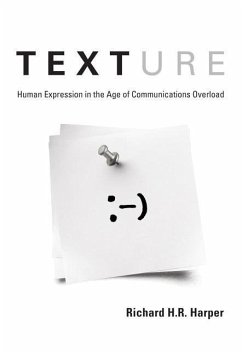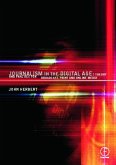Our workdays are so filled with emails, instant messaging, and RSS feeds that we complain that theres not enough time to get our actual work done. At home, we are besieged by telephone calls on landlines and cell phones, the beeps that signal text messages, and work emails on our BlackBerrys. In Texture, Richard Harper asks why we seek out new ways of communicating even as we complain about communication overload. Harper describes the mistaken assumptions of developers that more is always better and argues that users prefer simpler technologies that allow them to create social bonds. Communication is not just the exchange of information.







